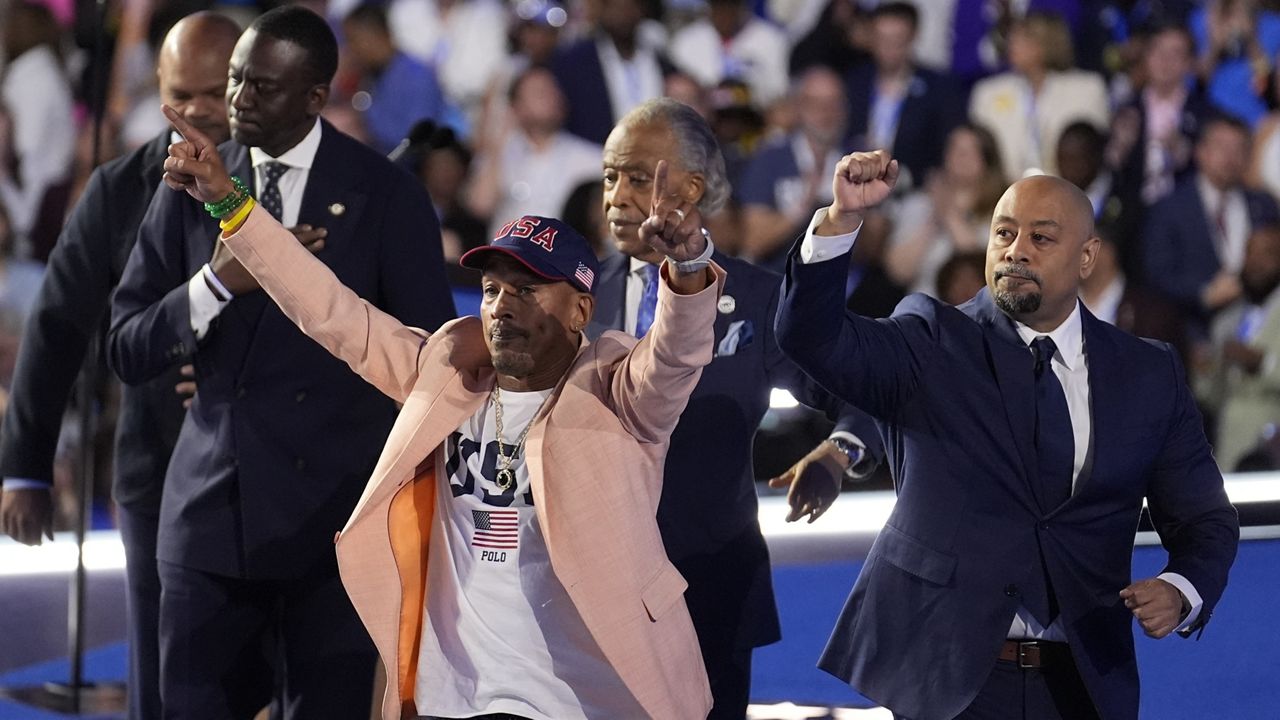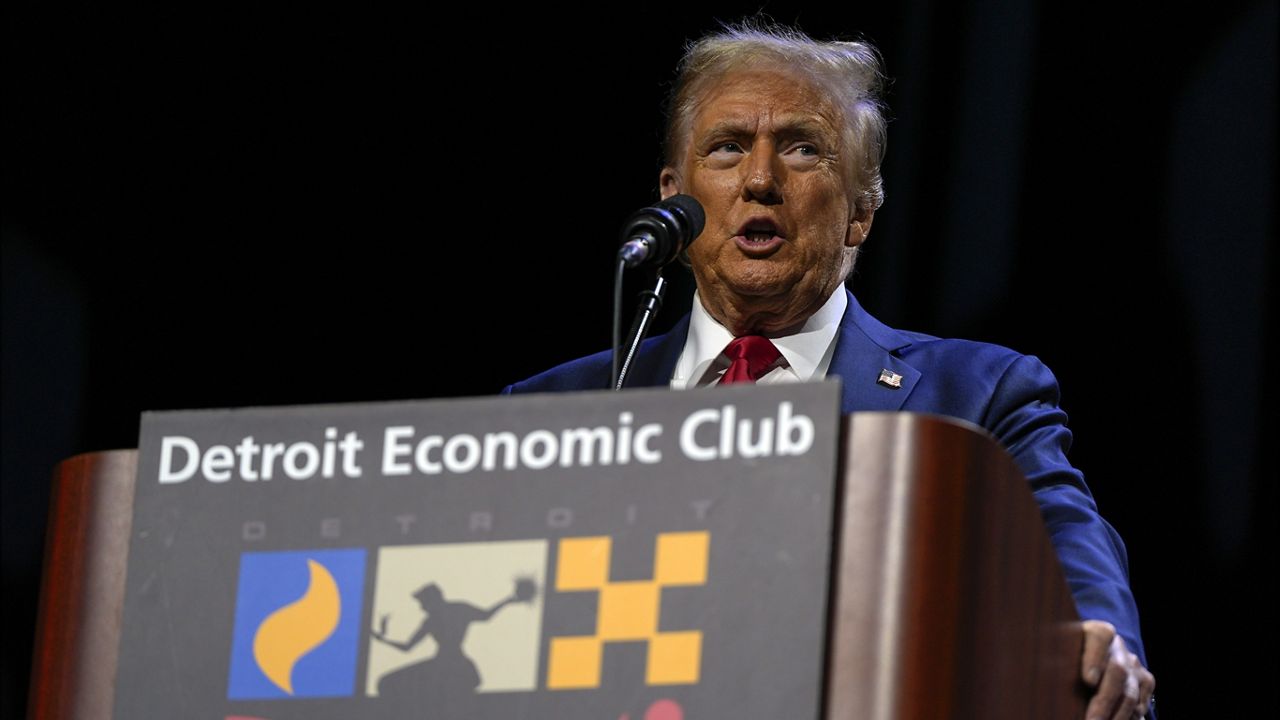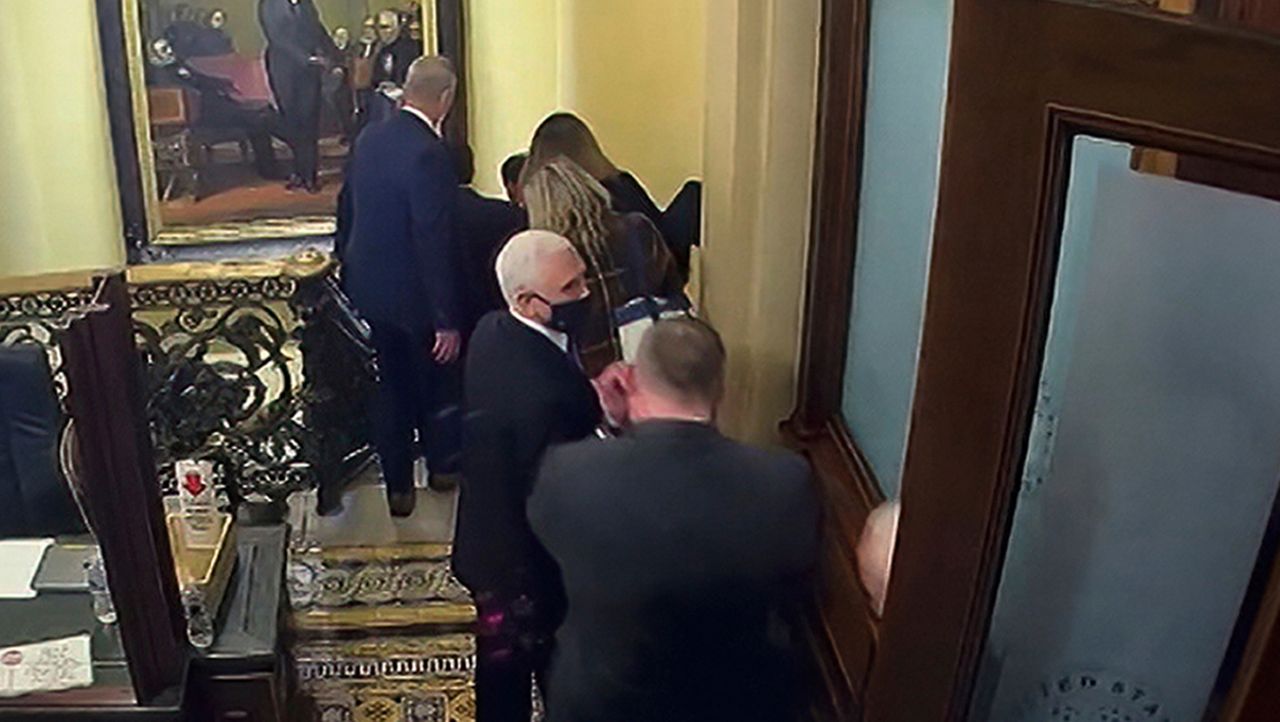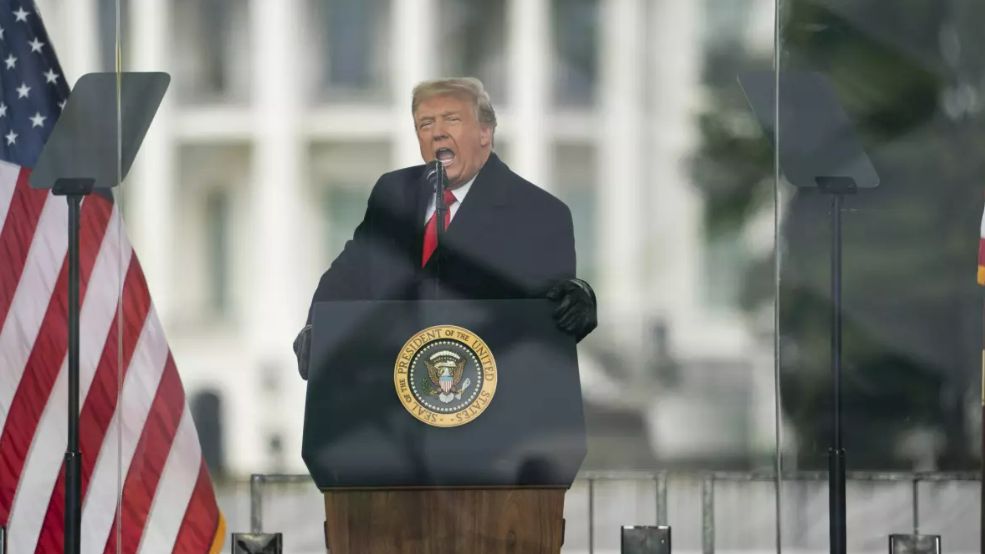In the first hearing of the Georgia election subversion case, Fulton County Superior Court Judge Scott McAfee ordered Wednesday that two co-defendants, Kenneth Chesebro and Sidney Powell, could not sever their cases from each other after both requested speedy trials, which are set for Oct. 23.
"Based on what’s been presented today, I am not finding the severance for Mr. Cheseboro or Powell is necessary to achieve a fair determination of the guilt or innocence for either defendant in this case," he said.
In the Wednesday hearing, the first in cases against the former president to be televised and streamed, prosecutors also estimated the trial against former President Donald Trump and the 18 co-defendants would take four months after jury selection, with the stipulation that it could take longer if defendants planned to testify themselves.
“In terms of the number of witnesses there in excess of 150 witnesses that the state intends to call,” special prosecutor Nathan Wade said.
Several other defendants have also asked to be tried separately or in small groups, and Trump, the early front-runner in the 2024 Republican presidential primary, has asked to be tried apart from anyone who files a speedy trial demand.
Trump and 18 of his allies were charged last month in a sprawling indictment accusing them of creating a "criminal enterprise" to overturn the state's 2020 presidential election results. The former president himself faces 13 felony charges, including violation of the Georgia Racketeer Influenced and Corrupt Organizations (RICO) Act, solicitation of violation of oath by a public officer and numerous conspiracy charges. The RICO charge carries a minimum of five years in prison.
All 19 defendants pleaded not guilty and waived their right to an in-person arraignment. Powell and Chesebro filed demands for a speedy trial.
After Chesebro filed his request for a speedy trial, Fulton County District Attorney Fani Willis asked for an Oct. 23 trial date for all of the defendants and expressed her desire that all 19 co-defendants would be tried together. Willis was not present at Wednesday’s hearing.
“We contend that we must prove the entire conspiracy against each and every one charged,” Wade argued. “The court in the interest of judicial economy would have to make the decision as to whether or not the court wants to try the same case 19 times or two.”
Wade said prosecutors still hoped to prosecute all 19 defendants at the same time, but would push to try the other 17 if Chesebro and Powell ended up being tried together. Neither Chesebro nor Powell were in court on Wednesday.
McAfee on Wednesday appeared to be skeptical about the proposed timeline.
"It just seems a little unrealistic to handle all 19 [defendants] in 40-something days," he said, citing the number of pretrial motions being filed by defendants.
An attorney for Powell — who faces 7 charges including violating the state’s RICO Act, conspiracy to defraud the state and conspiracy to commit election fraud — argued that her charges did not overlap with Chesebro’s indictment. Prosecutors argued that in a RICO case, all pieces of the conspiracy are necessary to prove racketeering.
“Ms. Powell had nothing to do with false statements to state legislators. Nothing to do with false statements to high ranking government officials. Nothing to do with false Electoral College documents. Nothing to do with the election worker here in Fulton County. Nothing to do with solicitations of the Department of Justice, nothing to do with solicitations to the Vice President,” her attorney Brian Rafferty said. “The only thing which she's alleged to have involvement in is, as my co-counsel has said is this Coffee County matter.”
“And frankly, your honor, the way the government has characterized that the evidence is going to show they're incorrect,” Rafferty added.
Powell is among four co-defendants facing charges connected to a breach in election equipment in Coffee County in southeast Georgia. Prosecutors alleged Powell and others attempted to access voting systems there in search of evidence to back up unsubstantiated claims she, Trump and their allies made about supposed election fraud.
Chesebro’s attorneys made the same argument, expressing their concerns the jury would have trouble discerning the evidence against their client from the evidence against Powell.
“We're charged in the RICO and then six predicate acts. The predicate acts only deal with the electors slate as far as who filled out the electors [paperwork], was that fraudulent or not?” said Manny Arora, one of Cheseboro’s lawyers. “With regards to what happened in Coffee County, you're going to have a ton of other charges from witness intimidation, computer hacking fraud, that has nothing to do with Mr. Chesbro.”
Chesebro this week also filed a motion to dismiss the charges against him, citing the Constitution’s Supremacy Clause.
He's accused of working on the coordination and execution of a plan to have 16 Georgia Republicans sign a certificate declaring falsely that Trump won and declaring themselves the state’s “duly elected and qualified” electors. Chesebro argues that his actions fall under federal authority and that the Supremacy Clause means he can't be prosecuted under state law for those actions.
Meanwhile, Trump's former White House chief of staff Mark Meadows was in federal court last week arguing that he was acting in his capacity as a federal official and his case should be heard by a federal judge. U.S. District Judge Steve Jones has yet to rule on that request. Four other defendants who are also seeking to move their cases to federal court have hearings set before Jones later this month.
Whenever and wherever any trial in the case ultimately takes place, jury selection is likely to be a significant challenge. Jury selection in a racketeering and gang case brought last year by Willis began in January and is still ongoing. In another big racketeering case, Willis tried nearly a decade ago against former Atlanta public schools educators, it took six weeks to seat a jury.
Willis’ team on Tuesday asked McAfee to allow the use of a jury questionnaire that prospective jurors would have filled out before they show up for jury selection, writing in a court filing that it “will facilitate and streamline the jury selection process in many respects.” Prospective jurors may be more comfortable answering personal questions on paper than in open court and lawyers for both sides could agree that certain jurors aren’t qualified without additional questioning, prosecutors said.









